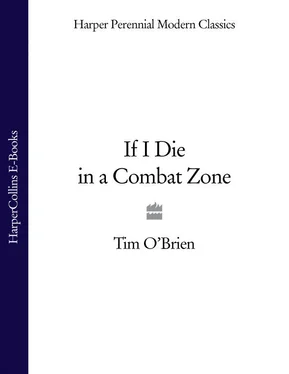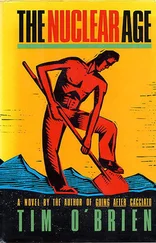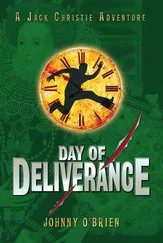Erik said we were just polishing boots and cleaning our guns, and Blyton grabbed a rifle, stopped grinning, and had us chant, pointing at the rifle and at our bodies, ‘This is a rifle and this is a gun, this is for shooting and this is for fun.’ Then he told us to report to him that night. ‘You two puss are gonna have a helluva time. You’re gonna get to pull guard together, all alone and in the dark, nobody watchin’. You two are gonna walk ‘round and ‘round the company area, holdin’ hands, and you can talk about politics and nooky all the goddamn night. Shit, I wish I had a goddamn camera.’
We reported to Blyton at 2100 hours, and he gave us a flashlight and black guard helmets and told us to get the hell out of his sight, he couldn’t stand to look at pussy, and he told us to be sure the barracks lights were out by 2230 hours and to report to him every hour.
We went out, and Erik said that the bastard didn’t have the guts to order us to hold hands.
We enjoyed walking guard duty. It was a good, dry night, and it was peaceful. We did not have to go through the night-time quarrels and noise in the barracks, and we could talk and enjoy the feeling of aloneness.
In two hours we found a trainee stealing an unauthorized phone call. We debated about the justice of turning the poor kid in to Blyton. We were getting tired and we knew his punishment would be to relieve us for the night. We gave Blyton the man’s name.
In twenty minutes, the trainee came out, asked for the flashlight and told us to go to bed.
Basic training nearly ended, we marched finally to a processing station. We heard our numbers called off, our new names. Some to go to transportation school – Erik. Some to repeat basic training – Kline. Some to become mechanics. Some to become clerks. And some to attend advanced infantry training, to become foot soldiers – Harry and the squad leader and I. Then we marched to graduation ceremonies, and then we marched back, singing.
I wanna go to Vietnam
Just to kill ol’ Charlie Cong.
Am I right or wrong?
Am I goin’ strong?
Buses – olive drab, with white painted numbers and driven by bored-looking Spec 4s – came to take us away. Erik and I stood by a window in the barracks and watched Blyton talk with parents of the new soldiers. He was smiling.
‘We’ll get the bastard,’ Erik said. We could pick off the man with one shot from an M-14, no problem. He’d taught us well. Erik laughed and shook his fist at the window. ‘Too easy to shoot him.
‘There’s not much I can say to you,’ Erik said. ‘I had this awful suspicion they’d screw you, make you a grunt. Maybe you can break a leg during advanced training; pretend you’re insane.’ Erik had decided at the beginning of basic to enlist for three years, tacking on an extra year as a soldier but escaping infantry duty. I had gambled, thinking they would use me for more than a pair of legs, certain that someone would see the value of my ass behind a typewriter or a Xerox machine. We’d joked about the gamble for two months.
I shook Erik’s hand in the latrine and walked with him to his bus and shook his hand again.
In advanced infantry training, the soldier learns new ways to kill people.
Claymore mines, booby traps, the M-60 machine gun, the M-70 grenade launcher. The old .45-calibre pistol. Drill sergeants give lessons on the M-16 automatic rifle, standard weapon in Vietnam.
On the outside, AIT looks like basic training. Lots of push-ups, lots of shoe-shining and firing ranges and midnight marches. But AIT is not basic training. The difference is inside the new soldier’s skull, locked to his brain, the certainty of being in a war, pending doom that comes in with each day’s light and stays with him all the day long.
The soldier in advanced infantry training is doomed, and he knows it and thinks about it. War, a real war. The drill sergeant said it when we formed up for our first inspection: every swingin’ dick in the company was now a foot soldier, a grunt in the United States Army, the infantry, Queen of Battle. Not a cook in the lot, not a clerk or mechanic among us. And in eight weeks, he said, we were all getting on a plane that would fly to a war.
The man who finds himself in AIT is doomed, and he knows it and thinks about it. There are no more hopes of being made into a rear-echelon trooper. The drill sergeant said it when we formed up for our first inspection: every swingin’ dick in the company was now a foot soldier, a grunt in the United States Army. Not a cook or typist in the lot. And in eight weeks, he said, we were all getting on a plane bound for Vietnam.
‘I don’t want you to mope around thinkin’ about Germany or London,’ he told us. ‘Don’t even think about it, ’cause there just ain’t no way. You’re leg men now, and we don’t need no infantry in Piccadilly or Southampton. Besides, Vietnam ain’t all that bad. I been over there twice now, and I’m alive and still screwin’ everything in sight. You troops pay attention to the trainin’ you get here, and every swingin’ dick will be back in one piece, believe me. Just pay attention, try to learn something. The Nam, it ain’t so bad, not if you got your shit together.’
One of the trainees asked him about rumours that said we would be shipped to Frankfurt.
‘Christ, you’ll hear that crap till it makes you puke. Every swingin’ dick is going to Nam, every big fat swingin’ dick.’
Someone raised his hand and asked when we’d get our first pass.
‘Okay,’ the drill sergeant said, acting like a sixth-grade schoolteacher. ‘You men are damn lucky. You got a square company commander. He knows what it’s like to get out of basic, and he told me to get you the hell out of here, fast. So, damn it, if you troops play right with me, there’ll be no problem. Get your gear into the barracks, sweep the place down, and you’ll be in Seattle in an hour.’
I went to the library in Tacoma. I found the Reader’s Guide and looked up the section on the United States Army. Under the heading ‘AWOL and Desertion’ I found the stuff I was looking for. Articles about soldiers who had crept away from the campfires, into Canada, Sweden, France, and Ireland. The librarian fetched out old copies of Newsweek and Time , and I went into a corner and made notes.
Most of the articles were nothing more than interviews with deserters, stories of their lives in Stockholm, where they lived openly, or in Paris, where they hid and used assumed names and grew beards. That was interesting reading – I was concerned with their psychology and with what compelled them to pack up and leave – but I needed something more concrete. I was after details, how-to-do-it stuff. I wanted to know the laws of the various nations, which countries would take deserters, and under what conditions. In one of the Time pieces I found a list of organizations in Sweden and Denmark and the name of a man in Holland, a member of Parliament, who ran a covert underground-railroad system, shipping disenchanted GIs to places where they would be free. I wrote down the names and addresses.
In another article, someone described the best routes into Canada, places where deserting GIs crossed. None of the NATO nations would accept US military deserters; some sort of a mutual extradition pact was in force. I knew Canada harboured draft dodgers, but I couldn’t find anything on their policy towards deserters, and I doubted our northern neighbours went that far. Sweden, despite all the problems of adjustment and employment, seemed the best bet.
I smiled at the librarian when I returned the magazines; then I went into the library’s lobby and called the bus depot. To be sure, I disguised my voice – perhaps they had some sort of tape-recording system – and asked about rates and time schedules for Vancouver. From Seattle, Vancouver was only a two-hour drive, the fellow said, and the rates were low and buses ran frequently, even during the night.
Читать дальше












